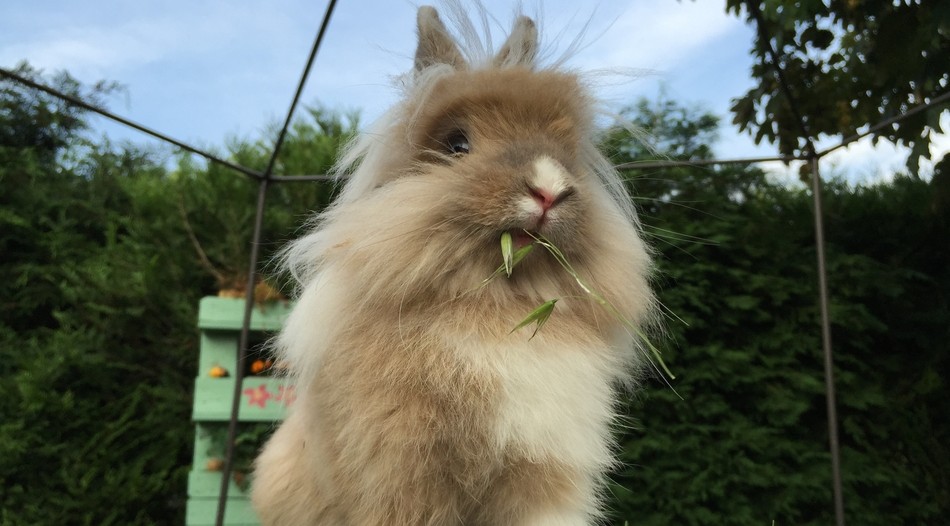Whether we’re talking about pets or animals used for breeding, rabbits must eat a specific diet in order to grow strong and healthy and avoid intestinal problems or an excessive intake of calcium.
Leporids are in the family of strict herbivores, or animals that feed exclusively on plants, grasses, and their derivatives. In fact, these animals get the energy they need entirely from the assimilation of fibre. From this fibre, absorbed by the intestinal tract or through the faeces, rabbits take in vitamins, proteins, and other substances.
The high quality rabbit feeds which are present on the market are created taking into account this animal’s unique digestive characteristics and can be found in pellet, wafer, or hay form.
The Importance of Fibre in the Diet of Leporids.
A rabbit’s diet must consist of 15% to 20% fibre in order to facilitate the production of energy and the proper functioning of intestinal peristalsis, or rather the movement of the intestinal tract that pushes faeces towards the anus.
It is, in fact, the intestinal microflora that transforms the fibre in alfalfa into nourishment, providing leporids with the nutrients that they need. That’s why it’s a good idea to dose the amount of fibre, and therefore of alfalfa-based feed, according to the animal’s age.
Rabbit Growth, How Dietary Needs Change
The Diet of Baby Rabbits
In the first two weeks of life a rabbit feeds on its mother’s milk. Until it is two months old, however, in addition to milk, it also eats the hay that it finds around it, including alfalfa. At the same time, but gradually, especially when it comes to the diet of domestic rabbits, vegetables and plant components are introduced, all with as low a sugar content as possible.
That’s why animal nutrition experts and veterinarians recommend giving rabbits very few carrots. At 60 days old a rabbit no longer needs its mother’s milk because it has already developed the necessary bacterial flora.
The Diet of Young and Adult Rabbits
In the first year of life, hay or alfalfa are the leporid’s primary source of nourishment. This is because young rabbits possess the necessary resources to properly assimilate calcium and fibre in order to use them to complete their growth. Additions to a young rabbit’s diet are wild grass (in the case of outdoor breeding), vegetables, and occasionally fruit and pellets.
What to Feed an Older Rabbit
Domestic rabbits that are around 5 or 6 years old must follow a diet that does not have an excessive amount of assimilated calcium. That’s why alfalfa-based feed is reduced in favour of more easily digestible foods like raw, room-temperature vegetables and, occasionally, fruit and pellets.
When to Use Pellets in a Rabbit’s Diet
In the diets of most rabbits, alfalfa pellets are used as a supplement to the normal diet.
In fact, this kind of feed for leporids is highly fibrous and therefore represents the component of the diet that causes the rabbit to chew for a long time. In this way the animal files its teeth, which can grow up to 12 cm per year, and thus prevents issues of malocclusion.
Rabbits can be given 1-2 spoonfuls per day of alfalfa pellets in order to guarantee maximum efficiency between the energetic and nutritional content and the mechanical chewing process. These recommendations can vary depending on the rabbit’s characteristics, age, weight, and any potential health issues.
The guarantee of quality pellets is their composition. This animal feed must be pure, meaning it must be made of 100% alfalfa that has been dehydrated using machines which make it possible to remove the water from the leaves without altering the product’s properties.
Agricole Forte’s pellets have a high protein content associated with a fibrous component that facilitates digestibility and the assimilation of beta-carotene and other nutrients.
In Agricole Forte’s various alfalfa pellets, one finds alfalfa that has been cut during the summer months as well as high quality dehydrated alfalfa pellets.
